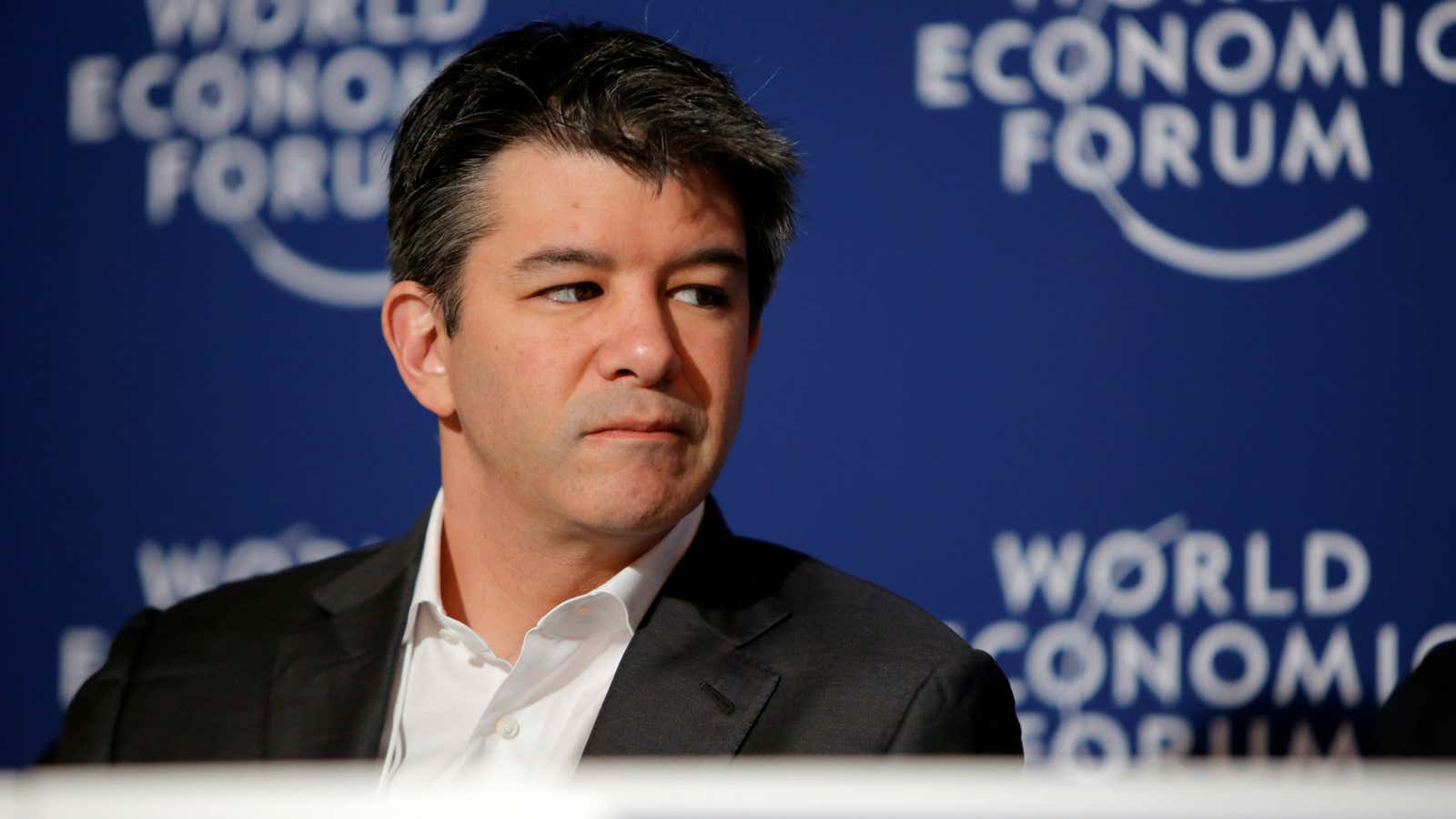Just a few months ago, Uber CEO Travis Kalanick “absolutely” had the full confidence of Uber’s board, according to director Arianna Huffington. Yesterday (June 20), he was forced out of the $70 billion company he founded, pressured by investors who found his leadership lacking.
Uber had numerous issues related to Kalanick’s leadership, including a sexist culture that resulted in allegations of harassment, a ruthless approach to expansion and labor relations that drew the ire of regulators and taxi unions globally, and the poaching of a former Google executive that led to a lawsuit from Alphabet over allegedly stolen technology.
All those issues—and more—led to a slowing of business and put the company’s prospects for an initial public offering in jeopardy. Investors, including Benchmark, Menlo Ventures, Lowercase Capital, First Round Capital, and Fidelity Investments had had enough and decided to push Kalanick out, the Wall Street Journal reported (paywall). Kalanick, 40 years old, had already opted to take an indefinite leave to mourn the sudden death of his mother in a boating accident that also critically injured his father on Pine Flat Lake in California in late May.
But the first public sign that Kalanick was on his way out came in March, with that “full confidence” remark. Historically, whenever a CEO, or a board—or your own boss—says publicly that they have full confidence in an executive, that marks them for firing, executive coaches and recruiters have long observed.
In June of 2011, Yahoo’s board stated they had “full confidence” in Carol Bartz as CEO. In September, she was fired over the phone by Yahoo’s chairman, Roy Rostock, one of the company’s co-founders. On July 25, 2010, BP publicly stated that Tony Hayward, the CEO famous for running the company during the disastrous Deepwater Horizon oil spill, “has the full support of the board,” only to announce the next day that US BP chief Bob Dudley would take over; Hayward had been still negotiating his severance package.
Even in government, such statements read as career death knells. On Feb. 13 this year, Trump surrogate Kellyanne Conway told MSNBC that then-national security advisor Michael Flynn enjoyed the “full confidence of the president.” Flynn was toast the next day. Whenever a boss says, ” ‘You have my full confidence,’ I often advise the person to update their resume,” Dee Soder, managing partner of the CEO Perspective Group in New York, which advises top executives, told Quartz. Such statements are often made publicly by sports team owners about losing coaches, says Randi Melnick, an employment lawyer in New York. “Those are red flags,” she says. “One more losing season and the coach does not have their confidence any more.”
For Kalanick, Huffington’s full-confidence statement was followed by a devastating report from an outside legal firm documenting numerous problems with the company’s ethics, culture, and business practices. And with that, the last whiff of investors’ confidence evaporated.
